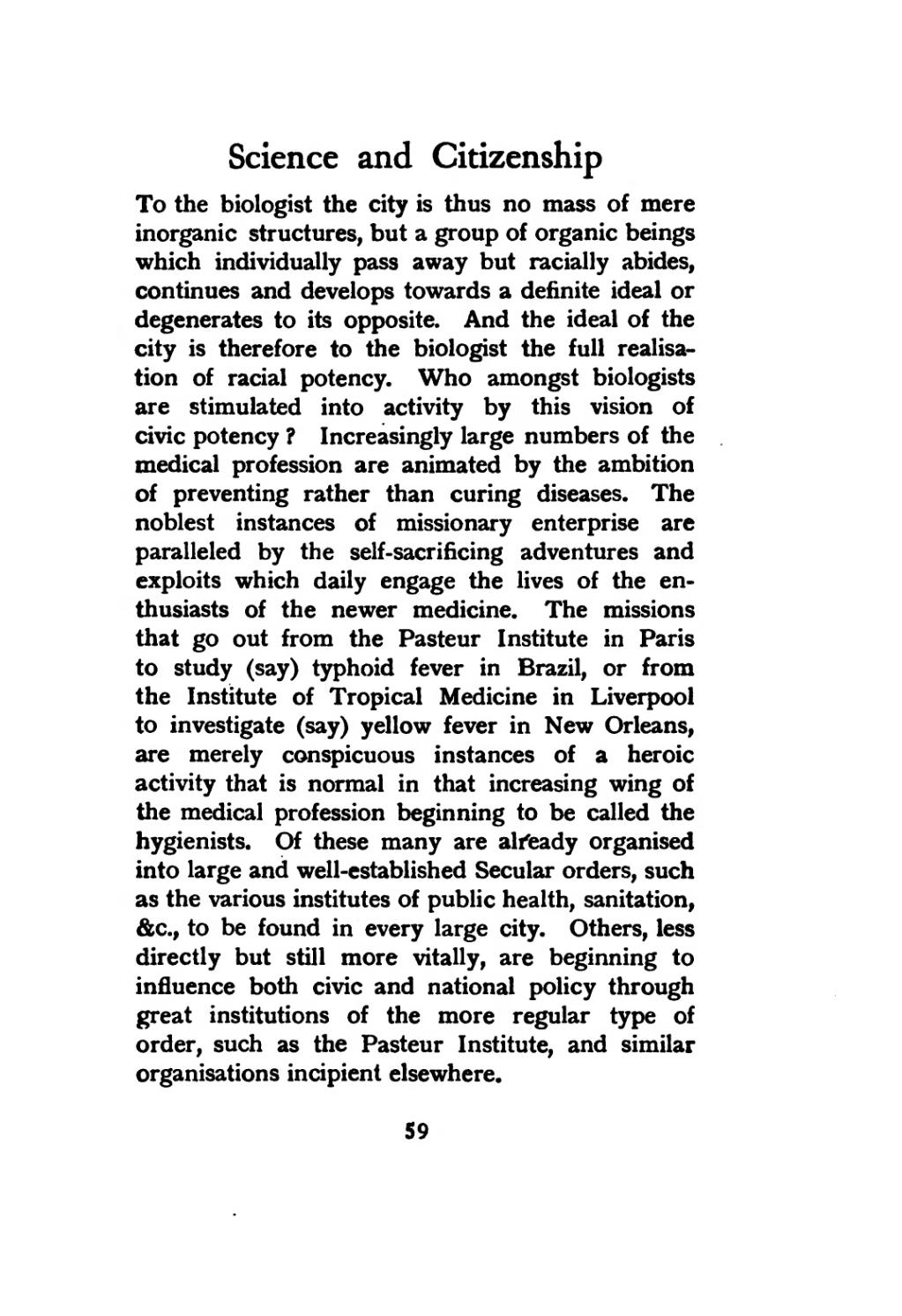Science and Citizenship
To the biologist the city is thus no mass of mere inorganic structures, but a group of organic beings which individually pass away but racially abides, continues and develops towards a definite ideal or degenerates to its opposite. And the ideal of the city is therefore to the biologist the full realisation of racial potency. Who amongst biologists are stimulated into activity by this vision of civic potency? Increasingly large numbers of the medical profession are animated by the ambition of preventing rather than curing diseases. The noblest instances of missionary enterprise are paralleled by the self-sacrificing adventures and exploits which daily engage the lives of the enthusiasts of the newer medicine. The missions that go out from the Pasteur Institute in Paris to study (say) typhoid fever in Brazil, or from the Institute of Tropical Medicine in Liverpool to investigate (say) yellow fever in New Orleans, are merely conspicuous instances of a heroic activity that is normal in that increasing wing of the medical profession beginning to be called the hygienists. Of these many are already organised into large and well-established Secular orders, such as the various institutes of public health, sanitation, &c., to be found in every large city. Others, less directly but still more vitally, are beginning to influence both civic and national policy through great institutions of the more regular type of order, such as the Pasteur Institute, and similar organisations incipient elsewhere.
59
